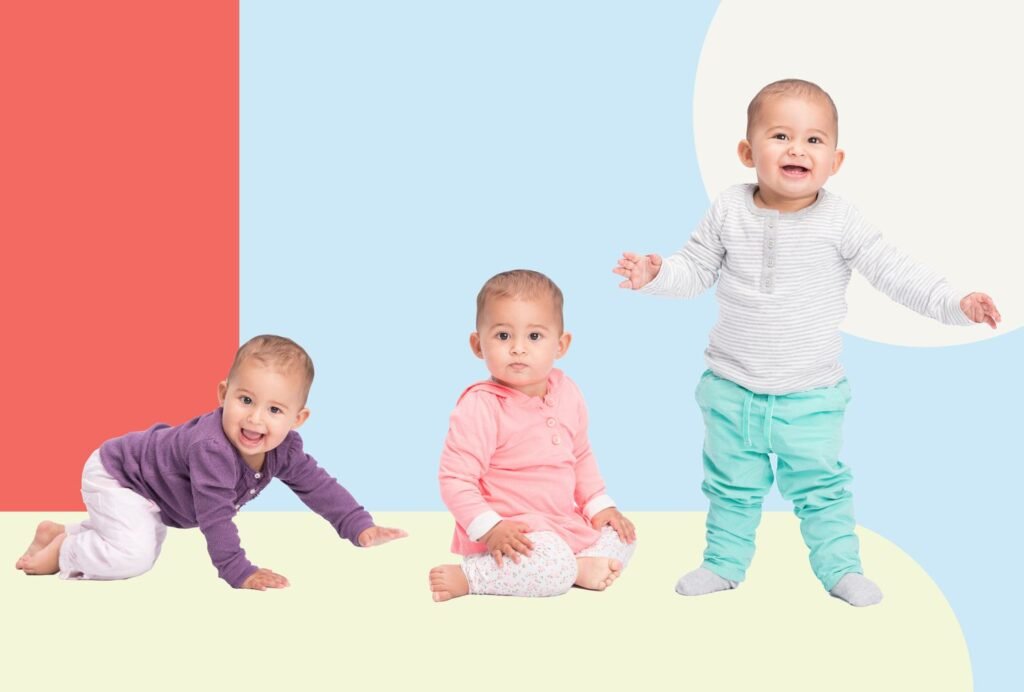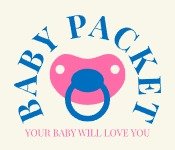Every baby develops at their own pace, but understanding typical milestones can help parents recognize key stages in their child’s growth. Milestones offer a general guideline for motor skills, communication, social interaction, and cognitive abilities. Tracking these can provide insights into how your baby is growing and help you identify any areas that may need extra support.

Why Milestones Matter
Milestones are indicators of a child’s development in various domains, such as:
- Physical development: Muscle control and coordination.
- Cognitive development: Problem-solving and learning skills.
- Language development: Understanding and communication.
- Social and emotional development: Interactions with others and emotional expression.
While these markers are essential, remember that each child is unique. A slight variation from the typical timeline is often perfectly normal.
Key Developmental Milestones by Age
0-3 Months: Building the Foundation
In the first three months, babies are adjusting to the world outside the womb.
Physical Development
- Raises head while on their stomach.
- Grasps objects reflexively.
- Brings hands to mouth.
Cognitive and Sensory Development
- Follows objects with their eyes.
- Recognizes familiar voices, especially parents’.
Social and Emotional Development
- Begins to smile in response to social interaction.
- Shows interest in faces.
Language Development
- Makes cooing sounds.
- Turns head toward sounds.
4-6 Months: Enhanced Interaction
This period is characterized by increased awareness and interaction with the environment.
Physical Development
- Rolls over from front to back and vice versa.
- Begins to sit with support.
- Reaches for and grabs toys.
Cognitive Development
- Explores objects by putting them in their mouth.
- Recognizes familiar people and objects from a distance.
Social and Emotional Development
- Shows excitement by waving arms or kicking.
- Enjoys play and may laugh aloud.
Language Development
- Begins babbling with consonant sounds like “ba” or “da.”
- Responds to their name.
7-9 Months: Becoming Mobile
Babies start to explore more and develop stronger motor skills during this phase.
Physical Development
- Crawls or scoots to move around.
- Sits without support.
- Pulls to stand while holding onto furniture.
Cognitive Development
- Understands the concept of object permanence (objects still exist even when out of sight).
- Engages in simple problem-solving activities.
Social and Emotional Development
- Shows stranger anxiety.
- Expresses a range of emotions, including joy, frustration, and sadness.
Language Development
- Uses gestures like waving or clapping.
- Recognizes simple words like “no” or “bye-bye.”
10-12 Months: Early Independence
By the end of the first year, babies begin to show more independence.
Physical Development
- Stands alone and may take first steps.
- Picks up small objects with thumb and forefinger (pincer grasp).
Cognitive Development
- Imitates actions such as clapping or waving.
- Looks at the correct picture when an object is named.
Social and Emotional Development
- Develops a strong attachment to caregivers.
- Shows preferences for certain people or toys.
Language Development
- Says simple words like “mama” or “dada.”
- Understands and follows simple commands like “give me the ball.”
Encouraging Healthy Development
1. Create a Stimulating Environment
Provide safe spaces for exploration, with a variety of sensory toys and activities. Encourage tummy time for physical strength and interactive play for cognitive growth.
2. Talk and Read Regularly
Talking to your baby and reading aloud enhances language development. Even if they don’t understand, they’re absorbing sounds and patterns.
3. Respond to Their Needs
Consistent and loving responses to your baby’s cues help build trust and emotional security, which are crucial for social development.
4. Encourage Physical Activity
Support motor development by encouraging crawling, reaching, and grasping through play.
When to Seek Guidance
While variations in development are normal, consult a pediatrician if:
- Your baby shows little or no response to sounds or faces by 3 months.
- Cannot sit independently by 9 months.
- Does not babble or use gestures by 12 months.
Early intervention can provide valuable support if needed.
Conclusion
Tracking developmental milestones provides a framework for understanding your baby’s growth. Remember, these milestones are not rigid rules but helpful guidelines. By offering a nurturing, interactive environment, you can support your baby’s unique journey through these exciting stages.
